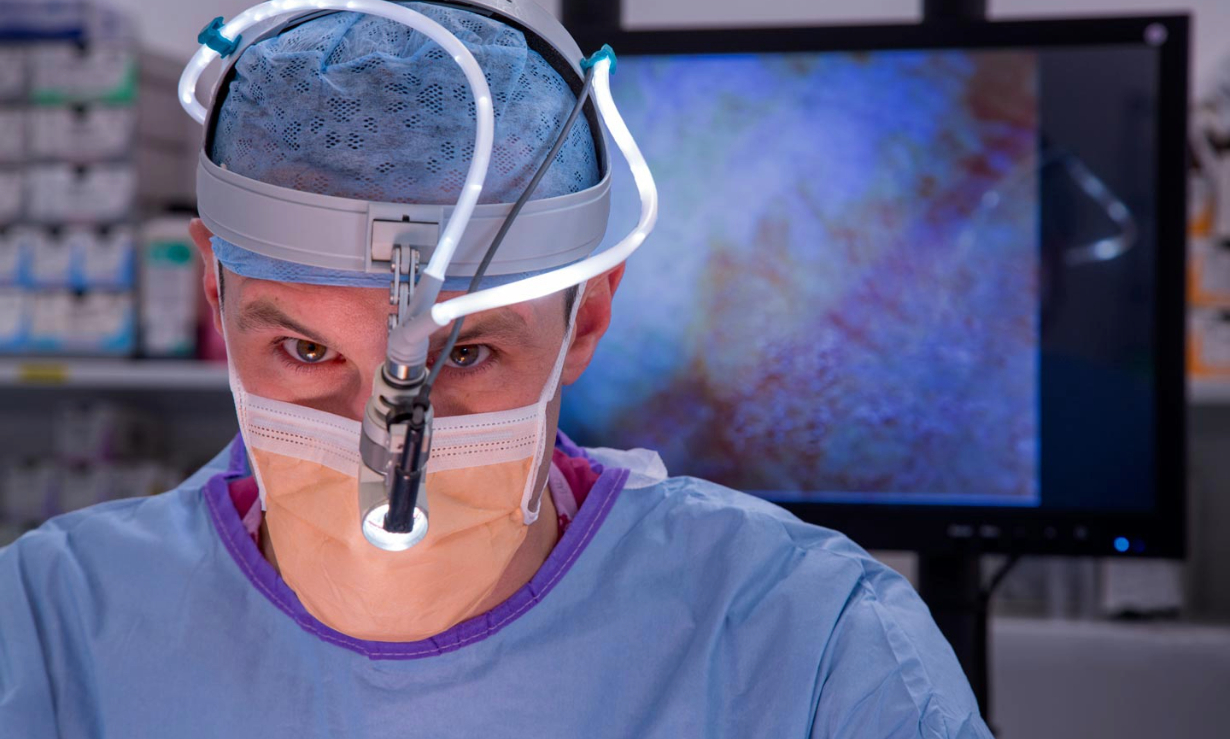In the midst of the COVID-19 pandemic, in August 2020, Nicola Packer went into Basingstoke hospital for a scan and a routine endoscope. She left the hospital with a diagnosis of oesophageal cancer.
Nicola had been previously diagnosed with Barrett’s oesophagus, a condition affecting the lining of the oesophagus that makes swallowing more difficult and causes reflux.
Due to her pre-existing conditions, Nicola was on a watch list, but she experienced no serious symptoms ahead of her cancer diagnosis.
“I was just extremely tired – sort of catatonic and I had difficulty in swallowing some foods” she says.
Having had many endoscopes in the past, Nicola elected to do this without anaesthetic, so that she could hear what the doctors were saying.
“There was a lot of blood and a lot of tension in the room, and that’s what I remember.”
The tumour was the size of a Starburst sweet, a major blockage in her oesophagus. The cancer diagnosis, while shocking, did not come as a complete surprise.
“I’ve had many years to get to get used to this. My father died of oesophageal cancer. So I’d always felt that I was going to be called up onto the team. I was already in the arena and I was lacing up my trainers, but I didn’t know when my race was going to begin. That’s the only way I can describe it.”
Many cases of oesophageal cancer are caught at a late stage, leaving palliative care as the only treatment option. The disease has a very low survival rate. Although Nicola’s cancer was caught at a relatively early stage, it was clear that the road would be hard.
The best care
Despite the prognosis, Nicola was reassured by the speed of her transfer to University Hospital Southampton, and the specialist team there.
“An awful lot of strangers went out of their way to save my life. My team were fantastic. They were cheerful and encouraging. I knew I was in for a rough time, which I felt confident I could handle.”
Nicola was placed under the care of Professor Tim Underwood, who prescribed six weeks of chemotherapy, six weeks of radiotherapy and a full oesophagectomy.
Tim has worked with computer scientists at the University of Southampton to develop an AI modelling tool that help predict a patient’s likely response to a given treatment. At 53, Nicola was younger than most oesophageal cancer patients, fit and healthy. The models suggested that this approach gave her a good chance of a positive outcome.
“I had to trust the process. I felt I was very much in a tried and tested pattern. I knew I had a good chance of beating it, but I was very realistic. It is, after all, one of the most difficult cancers to treat.”
Cancer treatment during COVID-19
Due to the ongoing pandemic, Nicola had to isolate away from her husband and children for the duration of her treatment. She lived in a small garden room separate from the house, as her immune system was compromised by the chemo- and radiotherapy.
It was hard, but her family understood that this was the only way to give her the best chance of survival. Her appointments at the hospital were curb-side drop-offs, with no visitors allowed in the treatment room.
“What lives with me is that my chemotherapy and radiotherapy teams were always cheerful and positive. That really surprised me as I was in a cancer ward, which you might expect to be a very sad and solitary place.
I was sat there back-to-back, socially distanced, with a face mask on but it wasn’t sad or solitary or lonely because the teams went above and beyond. I could not have had better care. They are the most extraordinary people doing the most extraordinary thing at the most difficult time.”
Out of the woods
Nicola responded well to her course of treatment and the models showed her likely 3-5 year survival rate at around 90 per cent.
Life post-surgery has not been smooth sailing. A keen swimmer, Nicola used to swim 60 lengths regularly. Now she struggles to manage 20, and sometimes even this is a challenge.
“If I’ve had a really bad day and a really bad night and I’m tired and I haven’t got any anything left in my reserves, I might only do 8 lengths, but that’s fine. The point is, I’ve got up. I went to the swimming pool. I did something. I have to forget the old Nicola.”
With no sign of the cancer returning, Nicola now hopes to live into her seventies.
“When people find out that I’ve had cancer, they tell me I’m unlucky, but actually I’m one of the lucky ones. I was caught. I was treated and I was sent on my way.
My approach is to take it one day at a time. Every day I say to my husband: ‘I’m not going to be fabulous today, but I will be tomorrow’ and that’s my philosophy for life.”
